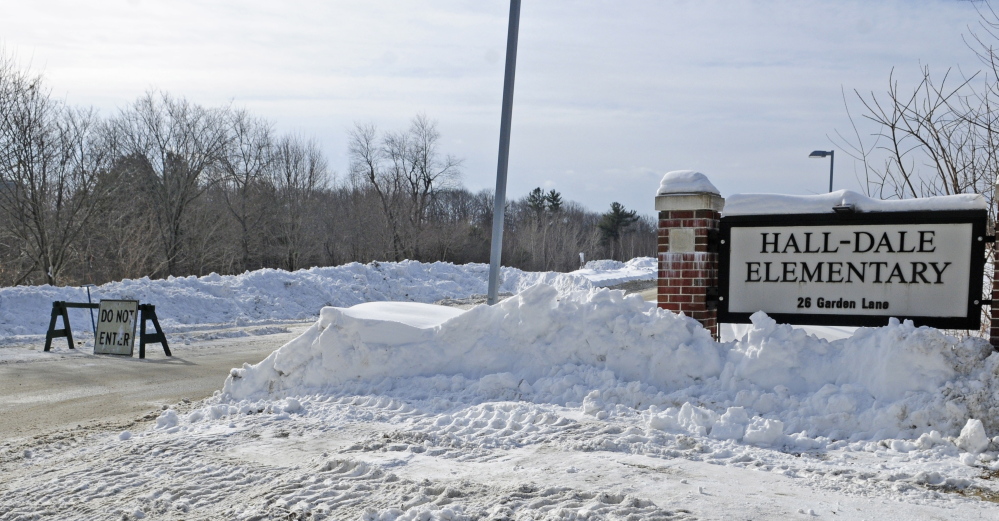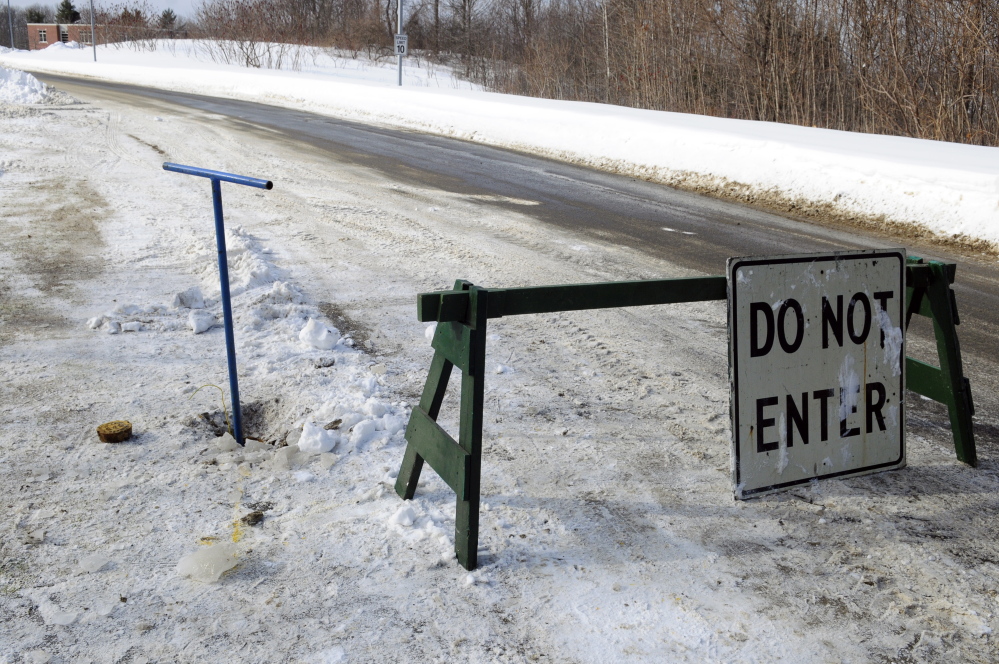After an early-morning natural gas leak at a Hallowell school this month, local officials say safety protocols are in place to deal with leaks in sensitive locations.
Nobody was in the building at the time of the leak at Hall-Dale Elementary School on Saturday, Feb. 7, and the leak was fixed that day without injury.
But the leak, caused by a contractor’s loader striking a Summit Natural Gas of Maine pipe attached to the school while removing snow, was one of the most serious incidents involving natural gas since two companies began expanding into the Kennebec Valley in 2013.
Local school administrators say if such a leak were to happen when school was in session, emergency protocols would be followed.
Virgel Hammonds, superintendent of Regional School Unit 2, which runs the Hallowell school, said children probably would be taken out of the building and into an open space away from the gas main on the school’s southwest corner. He called the leak an accident unlikely to happen again.
“It was repaired, the building’s as safe as ever and we’re glad no learning was interrupted,” Hammonds said.
The Hallowell Fire Department was called to the school around 3 a.m. that day. Lt. Peter Schumacher said firefighters could smell mercaptan, the rotten egg-smelling additive that helps people detect the odorless gas, as they approached the building from a quarter-mile away.
When they got there, Schumacher said, gas was “just rolling out” of the pipe that carries gas through a meter and into the building “with nothing to slow it down,” making a noise like a jet engine.
“It was, all around, just a bad scene,” Schumacher said.
Firefighters got away from the area around the leak and called Summit’s responders, responsible for fixing problems with the pipeline network from Richmond to Madison.
It took Summit’s responders 30 minutes to get there, and Hallowell Fire Chief Mike Grant said it took another 40 minutes for the company to locate a snow-covered valve along Winthrop Street and shut off gas to the property. To find it, they had to have the Wingate Landscape Co. loader that hit the pipe initially dig through deep snow cover. Schumacher said they dug in many areas near Winthrop Street before finding the main, which concerned him.
“The simple fact that they didn’t know where their gas main was is the most aggravating thing to me,” he said.
Keith Lincoln, Summit’s senior operations director, said in a statement that employees “worked diligently to ensure public safety and secure the leak through the difficult environmental conditions of darkness and large snowbanks concealing the service valve,” calling safe operation and construction of the system “our number one priority.”
Summit met the Maine Public Utilities Commission’s response standards. The Hall-Dale leak would qualify as “grade 1,” the most severe of three tiers in the state energy regulator’s rating system for leaks, representing “an existing or probable hazard” to people or property.
Companies must respond immediately to those leaks. If they take more than an hour to get there, they must tell the state why. Harry Lanphear, a spokesman for the commission, said because the leak had “nothing to do with any error by Summit,” it probably wouldn’t take action against the company.
Grant was less concerned than Schumacher about the time it took to find the leak, saying “it went fine overall.” Waterville and Winslow Fire Chief David LaFountain said Summit usually responds to scenes in under an hour, while Augusta Fire Chief Roger Audette said Summit and Maine Natural Gas, which have competing pipeline systems in Augusta, have “handled everything properly, as far as I’m concerned.”
At Hall-Dale, Hammonds said the school might add barriers around the pipe to guard against future incidents.
Eric Haley, superintendent of the Waterville-area AOS 92, doesn’t have any buildings hooked up to natural gas yet, but he said emergency protocols would apply there.
John Pucciarelli, director of buildings and grounds for Augusta schools, which are hooked up, said the same. He said mains outside buildings are protected by 4-foot posts, and his employees are careful around them.
“If we clear snow around there, we clear it by hand,” he said.
Send questions/comments to the editors.



